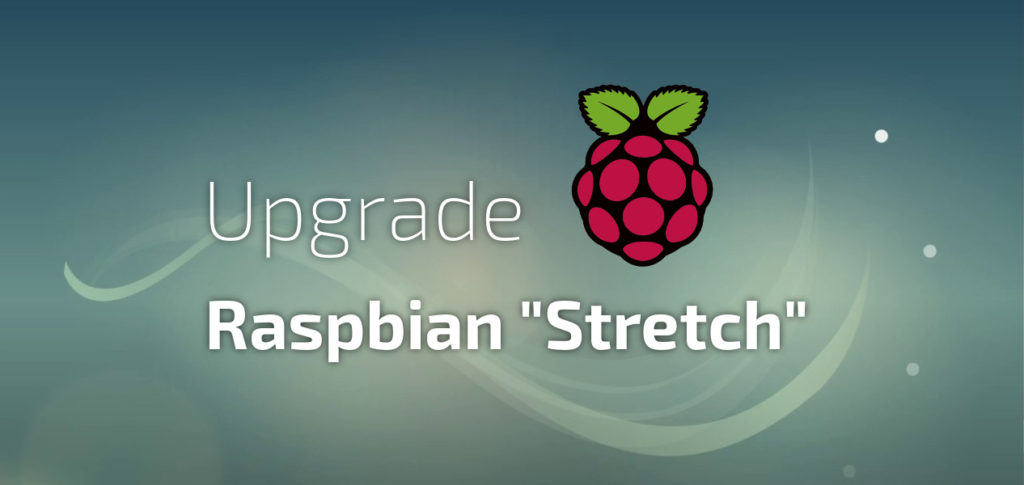Since August 17,2017 the new Rasbian version “Stretch”based on Debian 9 is available for download. If you don’t want to wait long and want to benefit directly from new kernel and software versions, you can upgrade to Raspbian “Stretch” in a few easy steps. The upgrade process takes some time and therefore requires some patience.
Difficulty level:
Step 1: Check available disk space
In order to update to Raspbian Stretch, there must be enough space on the SD card. Therefore you should check the available and used disk space usage first:
$ df -h
Step 2: Check package status
You must also check that all packages are in a state that is suitable for upgrade. The following command displays all packages that have the status semi-installed or configuration failed, and those with error status:
$ sudo dpkg --audit $ sudo dpkg --get-selections | grep hold
Step 3: Update system
Before upgrading, the Raspbian should be completely updated:
$ sudo apt-get update $ sudo apt-get upgrade $ sudo apt-get dist-upgrade
Step 4: Modify Release
For upgrading to the new Raspbian version, the package lists must be adapted to the “Stretch” release. To do this, only the word “jessie” has to be replaced by “stretch”. In order not to overlook any position, we simply let the replacement be done by the following command:
$ sudo sed -i /deb/s/jessie/stretch/g /etc/apt/sources.list $ sudo sed -i /deb/s/jessie/stretch/g /etc/apt/sources.list.d/*.list
Step 5: Updating package lists
The new package lists must then be updated and imported:
$ sudo apt-get update
Step 6: Update to „Stretch“
Now we are ready to start the upgrade:
$ sudo apt-get upgrade $ sudo apt-get dist-upgrade
The upgrade process is carried out in two steps: First of all, there is a minimal upgrade to avoid conflicts and then a complete upgrade. The upgrade may take a while depending on your Internet connection. A certain amount of attention is required during the update process, as some configuration files are also updated. Therefore, Raspbian asks several times if you want to replace certain configuration files with a new one. If you have made changes to individual configuration files yourself in the past, you should press D (display differences) or N (not replace) depending on the file, otherwise Y (to replace the old configuration file with a new one).
Step 7: Clean up installation
Old, unnecessary packages are removed after the system update with the following commands:
$ sudo apt-get autoremove $ sudo apt-get autoclean
Finally the Raspberry Pi has to be restarted.
Note: There is a rating embedded within this post, please visit this post to rate it.
